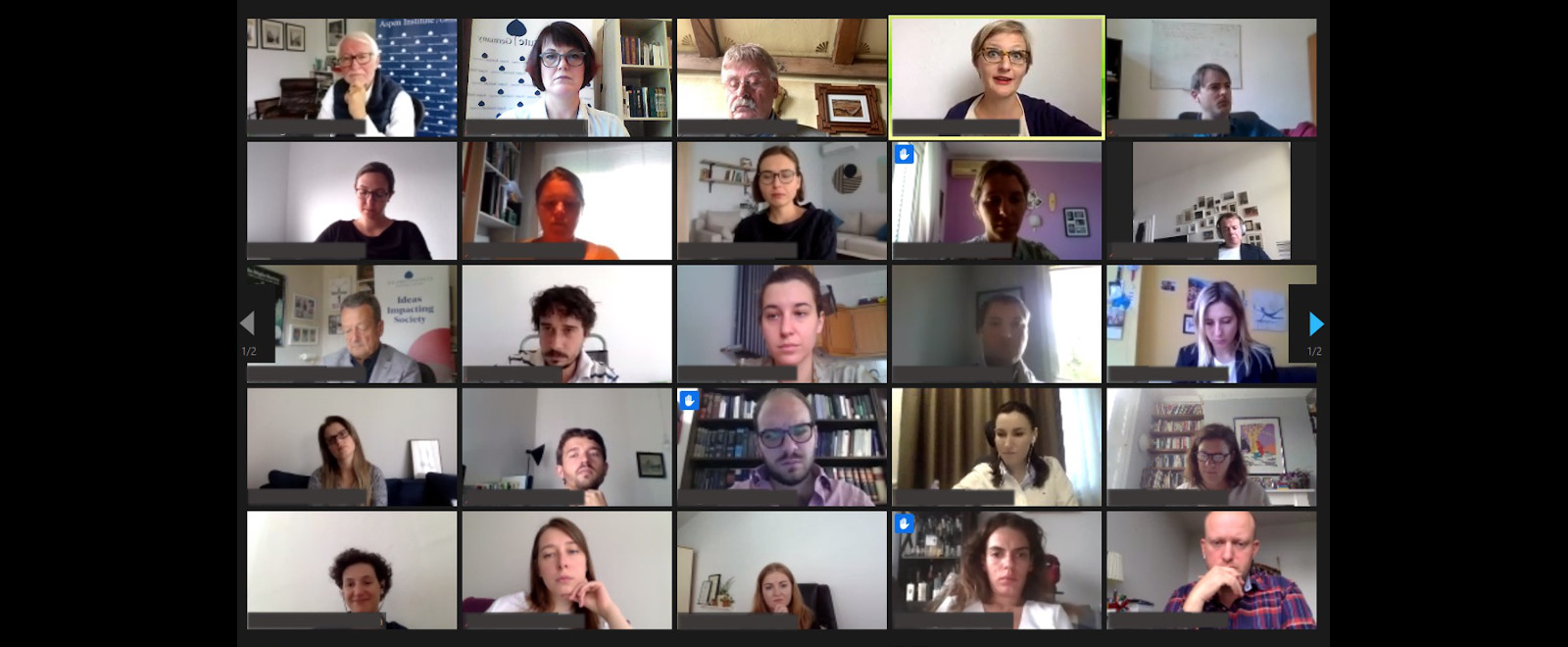This year’s Aspen Young European Leaders Seminar was the fourth in line following first successful editions organized in Italy, Spain, and France. This year’s seminar was planned to be held at Schloss Pillnitz, just outside Dresden, hosted by Aspen Institute Germany in cooperation with Aspen Institute Central Europe, under the umbrella of the Aspen Initiative for Europe. Given the current circumstances under the COVID-19 pandemic, however, the in-person seminar had to be converted into an online format that took place from September 3-5, 2020.
The participants were welcomed by Erik Kurzweil, Head of International Relations at the State Chancellery of Saxony. Briefly, he gave an overview of the region’s key information and also of major social tensions that impact the work of politics and business alike: a plunge into many topics that recurred throughout the seminar.
The question about where Europe is headed came up in a panel discussion with Elmar Brok, former member of the European Parliament (CDU), and Franziska Brantner, former member of the European Parliament, member of the German Parliament (B’90/ Greens). These challenging times may have lead towards coherence and unity or the alliance was maybe too challenged and divided in their aims and values.
Very much oriented at the original curriculum, 22 participants from all over Europe and sectors as diverse as think-tanks and politics, trade and commerce, the media and human rights, history and urban planning, as well as tech and artificial intelligence convened on Zoom to discuss the present state of the continent and its future under the title “Fractured Europe?”. Skilfully moderated by long-time Aspen Germany moderators Leigh Hafrey, Senior Lecturer at MIT’s Sloan School of Management, and Ruth Girardet, Member of the Council of The Open University, the debate was based on texts as fundamental as the UN Declaration of Human Rights and the German Basic Law, Immanuel Kant’s Groundwork for the Metaphysics of Morals; included contemporary authors like Olga Tokarczuk, Peter Schneider, and Vaclav Havel and touched on timely topics like surveillance capitalism and “stabilocracies” in Central and Eastern Europe.

